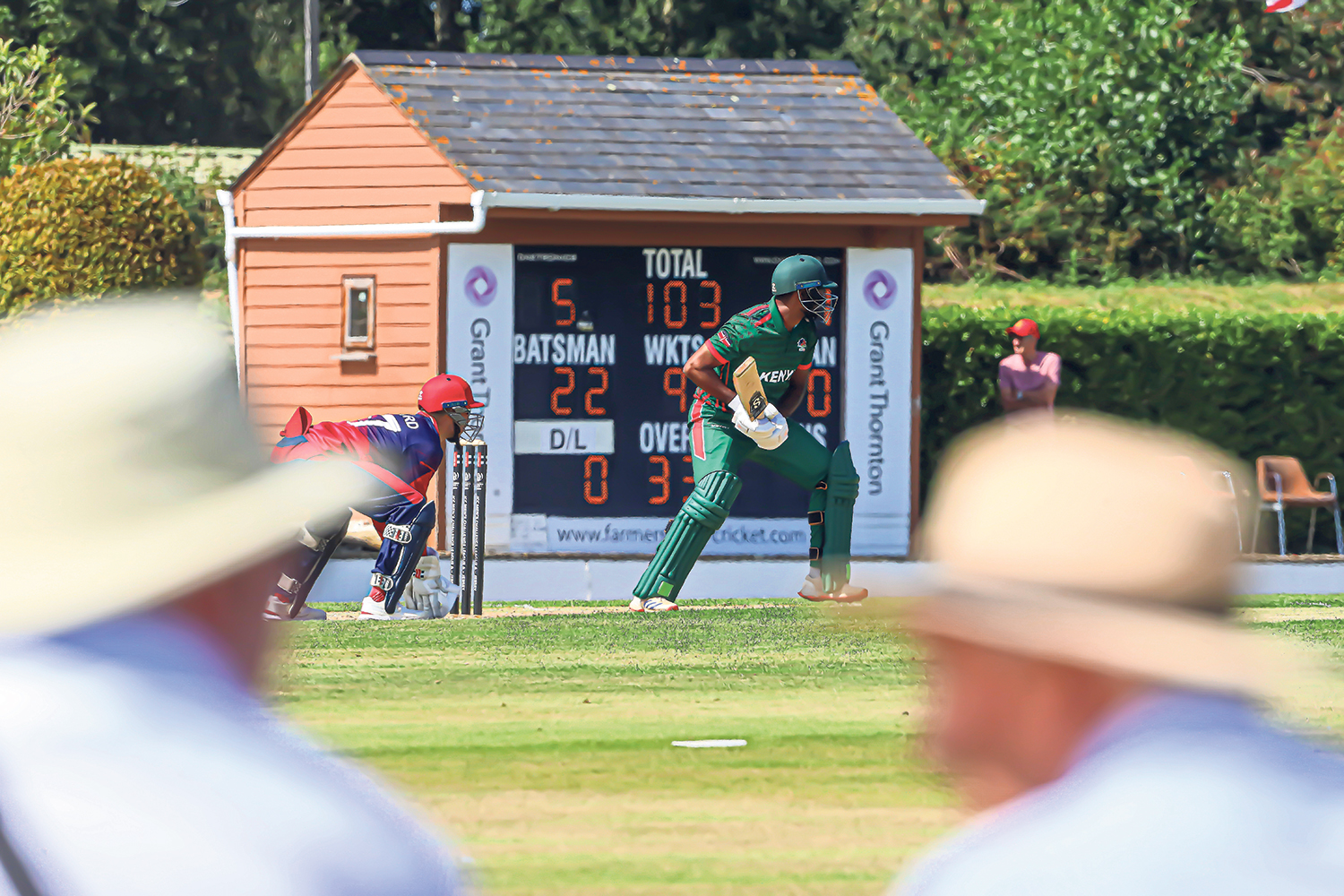It’s called Farmer’s Field for a reason. “It’s owned,” explains Jersey Cricket chief executive Sarah Gomersall, “genuinely, by a farmer, who 21 years ago decided that cricket was his passion, and that he would convert a field where he usually grew potatoes into a cricket field.”
And so 21 years later, on the very same ground where the farmer’s potatoes used to grow, Jersey this week relaunched their quest for World Cup qualification with a seven-wicket win over Kenya.
Cricket is booming in the Channel Islands. In truth, we are joining this story in the middle. Jersey will hope to end this week in the top two of their group of six, but will have to play play another set of matches next year in this competition, the ICC Cricket World Cup Challenge League Group A, and maintain that position.
That will then put them into the qualifier play-offs, where success will put them in the official World Cup qualifiers in 2027. It feels both a world away and within touching distance.
Earlier this year, they missed out on reaching the T20 World Cup on net-runrate, a gut-wrenching near miss for a cricketing nation like Jersey on the rise.
Normally these stories of small nations who have a pop at the big time are the result of a flash in the pan. Associate level cricket fluctuates wildly due to the inherent amateur status of almost all the players.
People cannot keep taking two weeks off work to play cricket, including those whose job it is to actually play cricket.
Asa Tribe, born and bred in Jersey and a professional with Glamorgan, isn’t able to join the squad until later this week due to commitments with his county.
But while Jersey have to battle matters of employment like everyone else, their growth has been built on steady, sustained success. In 2013, they were competing in Division Six of world cricket against the likes of Vanuatu, the East-Asia Pacific ICC team, but one promotion has led to another and to a strategic drive to host more global competitions on a regular basis.
Furthermore, with a population of only 100,000, it means that unlike other nations who can rely on the odd player finding a useful passport down the back of the sofa, they have to rely on their talent being homegrown.
Newsletters
Choose the newsletters you want to receive
View more
For information about how The Observer protects your data, read our Privacy Policy
Cricket has had a renaissance here. It’s become an attractive sport in its own right for boys and girls
Cricket has had a renaissance here. It’s become an attractive sport in its own right for boys and girls
Sarah Gomersall, Jersey Cricket
“Up until 2015 we did host but it was more infrequent,” says Gomersall. “Then, in 2022 we hosted the last round of this competition which we ended up winning and in 2023 we hosted the women’s European Division 2 qualifier.”
A strong performance from the women in that year was equally seismic and led to increased investment in the women’s side of the game, with a full-time cricket coach recruited for the first time.
“It’s had a renaissance,” says Gomersall. “It used to only be girls that had a dad or brother who played, whereas now it’s become an attractive sport in its own right.
“To play for Jersey you have to be born on the island or you have to have lived here for three years.
“So maintaining this level of interest and encouraging children, whether boys or girls, to play cricket is essential.”
On the island there are four Premier League teams, two of which are the host grounds for this week. Farmer’s Field is home to the aptly named Farmers Cricket Club, while the second ground, Grainville, is home to Jersey’s National Centre of Cricket and the pessimistically named Walkovers Cricket Club.
“Farmer’s Field is quintessentially English,” says Gomersall. “It’s in the east of the island, has a wooden pavilion, is close to the sea and is beautiful. While Grainville is on the outskirts of the capital St Helier, so it’s accessible to the main hub of the island.”
Grainville is beautiful, too. With a large grass bank on one side, a marble outfield and bleachers scattered around the boundary where spectators and passersby can take a seat, it hosted a thriller between Kuwait and Qatar on the opening day of the competition on Thursday.
Grainville will also host an unlikely but heartwarming event today. Jersey and Kenya share an employment agreement, meaning there are around 600 Kenyans who live on the island. For the African team’s first weekend fixture of the competition, when they play Qatar, Grainville is throwing a Kenyans and Friends family day where they hope to get as many of the local community down to the match as possible.
“There’s a lot of interest there,” says Gomersall. “And it brings an added dimension to it, because obviously the Islanders in Jersey root for their own team but we’ve got a sizeable population who are also here supporting Kenya.”
Jersey’s own weekend matches are expected to draw crowds of up to 500. And while not blockbuster numbers, they are strong for an island the size of Jersey and reflect a growing passive interest as well as active fandom. People may not be especially interested in cricket, but they are interested in the fortunes of their country, with TV crews on location checking in and covering the event.
“All the players are known,” says Gomersall. “They can walk into restaurants and people will know who they are.
“Some of the men’s players even have people who will sing their songs. There’s an awful lot of support willing them on.”
And if things carry on the way they are, it won’t be long until they’re singing them at the World Cup as well as at home.
Photograph by Jersey Cricket



